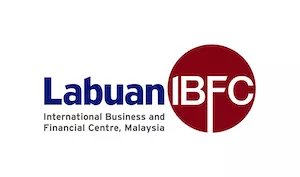The Labuan Development Blueprint 2030 launched by the Prime Minister of Malaysia, Datuk Seri Najib Tun Razak recently, will create the pathway to the growth and development of the Federal Territory Labuan.
The Blueprint includes the roll out of more than 20 key projects over the next decade or so, aimed at boosting Labuan's economic growth.
During the launch, Najib also announced the implementation study of the long awaited bridge linking Labuan island to the mainland of Sabah. The multimillion ringgit bridge is set to enhance the connectivity of the island by creating a much needed link to the Borneo mainland.
This bridge has been on the cards for nearly a decade, and is very much seen as a catalyst and game changer for the local economy and the island's socioeconomic landscape.
In addition, it was also announced that the remit of Labuan IBFC will be expanded to certain niche areas of the industry connected to the real economy of the island such as methanol, tourism, aviation, education and healthcare.
Labuan IBFC: The island's change enabler
Along with the launch of the blueprint, the Prime Minister also launched the Labuan Financial Services Authority's (Labuan FSA) Financial Transformation Plan which highlights the pivotal role Labuan IBFC plays as a catalyst for change in these niche sectors.
According to the Prime Minister, it was time for Labuan IBFC to relook at its operational journey to ensure that its benefits are felt by the local economy and community.
"And we are launching the Labuan FSA's Financial Transformation Plan which is expected to bring the desired impact," Najib said when launching the Labuan Development Blueprint 2030 recently.
He also said the federal government is aware that Labuan IBFC has become one of the world's fastest growing midshore and financial centres and that it has played an important role in the development of the country and the region, especially as a point of intermediation of trade, finance and investments.
Indeed, Labuan IBFC was established to not only facilitate the strategic growth of businesses in Malaysia especially the needs in relation to transboundary trade but to also offer these benefits to businesses across the region.
Without a doubt, the level of growth in Labuan IBFC has been commendable. It is worth noting that since the global 2008 financial crisis, the number of companies incorporated in Labuan IBFC that have benefitted from its business-friendly, tax and currency neutrality has more than doubled.
Hence, it is only natural that the facilitative framework offered by Labuan IBFC is extended to niche areas within Labuan's real economy in order to kick-start its growth and to uplift its economic status.
Danial Mah Abdullah, Director-General of Labuan FSA said, "There will also be greater focus on developing emerging niche segments of the financial sector itself that can then be expanded to ultimately become the key growth areas for Labuan's real economy."
Hence, the transformation plan focuses on the integration of the financial sector with the local economy, as well as that of the nation's, he added.
It is expected corporations and businesses looking to participate in the niche areas identified in the transformational plan will benefit from Labuan IBFC's corporate structure and fiscal incentives that will allow for foreign shareholding, tax and currency neutrality.
Further details in relation to this are expected to be announced in due course.
The new game plan
The four main tenets of the transformation plan include serving the regional businesses; developing financial niches to fulfil future international market demands and to diversify for financial solutions and structures for economic sustainability; fiscal strengthening which will include the refinement of its existing tax framework; and supporting Labuan's economic development and connectivity.
Labuan IBFC will adopt a two-pronged strategy in its transformation plan, i.e. horizontal broadening of the Labuan economic base and the modernisation of its tax framework. Via its financial services industry, the centre will facilitate the growth of the methanol supply chain. Besides encouraging more production of methanol, there will be plans to promote the development of small and medium enterprises attached to the methanol downstream industry and its logistics servicing.
The transformation plan also includes initiatives to enhance the business activities relating to ship maintenance, aviation, tourism, education and healthcare.
The tax incentives in Labuan IBFC are also expected to be rationalised to ensure business sustainability and to maintain or even increase fiscal contribution to Malaysia. Under the transformation plan, the tax incentives will also be extended towards developing niche markets, identified as Real Economic Potentials in an effort to support the economic expansion plan of the island.
"As the subset of the whole Labuan Development Blueprint 2030, the Labuan IBFC's Transformation Plan reflects and facilitates the government's commitment to elevate the economic stature of Labuan to become an integral growth component of the nation's economy.
"It is our hope that the implementation of the blueprint will be well executed as planned and meet the expected outcome, for the betterment of the people on the island," Danial said.
The content of this article is intended to provide a general guide to the subject matter. Specialist advice should be sought about your specific circumstances.

